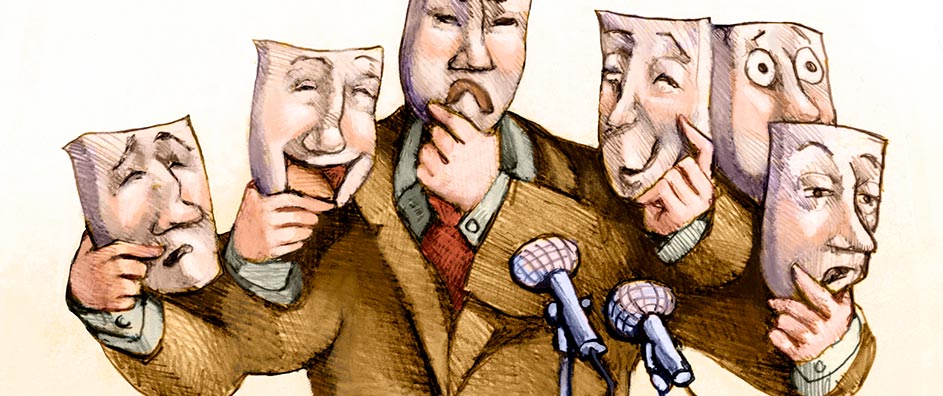In today’s intricate societal landscape, where information is abundant yet often distorted, the relationship between truth and propaganda has become increasingly pivotal. Bahá’í teachings provide profound insights into the nature of these concepts, aiming to foster a dialogue characterized by authenticity and an understanding of the broader implications of beliefs and narratives. Through examining the principles espoused by Bahá’í teachings, we can navigate the complexities surrounding truth and propaganda in contemporary discourse.
The exploration of truth within the Bahá’í Faith is underpinned by the recognition that truth is not merely a subjective construct but rather an absolute reality that transcends cultural and temporal boundaries. Bahá’u’lláh, the founder of the Bahá’í Faith, emphasized the importance of truthfulness in personal and communal interactions. This insistence on sincerity serves as a foundational tenet, urging individuals to cultivate an environment where honest discourse prevails, thereby fostering an enlightened society.
In contrast, propaganda emerges as a tool often wielded to shape perceptions, manipulate opinions, and propagate specific ideologies. Its essence lies in the selective presentation of information, aiming to persuade rather than inform. Propaganda can obscure truth and lead to societal polarization by distorting the narrative surrounding pivotal issues. The Bahá’í teachings caution against the dangers of such manipulation, emphasizing the necessity for discernment in evaluating information and understanding its implications on both a personal and societal level.
A salient observation arises when examining the interplay between truth and propaganda: while truth is an objective reality, propaganda exploits the subjective nature of individual beliefs and perceptions to create alternative realities. This phenomenon speaks to the deeper human propensity for fascination with narratives that resonate with personal experiences or confirm preexisting biases. Consequently, one must recognize that the allure of propaganda often lies not in the merit of its content but in its ability to engage emotionally, offering comfort or validation.
Furthermore, the Bahá’í teachings elucidate the critical role of education in mitigating the adverse effects of propaganda. By fostering critical thinking and equipping individuals with analytical tools, education becomes a transformative force that enables discernment in the face of misleading narratives. This aligns with the belief that a well-informed populace is essential for the health of any society, as it cultivates individuals who can engage in thoughtful dialogue rather than succumbing to dogmatic adherence to propagandistic narratives.
The challenge, therefore, lies in creating an inclusive dialogue that actively engages diverse perspectives while prioritizing veracity. The Bahá’í principle of unity underscores the importance of collaboration and mutual understanding, inviting individuals to approach discussions with an open heart and mind. This ethos encourages the acknowledgment of common humanity, thereby fostering an environment conducive to constructive exchanges. Ultimately, it is through dialogue—rooted in a commitment to truth—that societies can bridge divides and work toward collective advancement.
Moreover, the digital age has exacerbated the challenges associated with propaganda dissemination. The rapid proliferation of information through social media platforms often muddles the distinction between credible sources and those driven by ulterior motives. In this context, Bahá’í teachings advocate for a conscientious engagement with media, urging individuals to seek knowledge rigorously and critically assess the veracity of information before internalizing or disseminating it. This mindful approach empowers individuals to be not only consumers of information but also active participants in the creation of a more truthful dialogue.
In addressing the nuances of truth and propaganda, it is crucial to recognize the ethical dimensions that underpin these discussions. The Bahá’í teachings advocate for a moral framework that governs individual and collective interactions. This ethical consideration propagates accountability within discourse, compelling individuals and organizations to adhere to truths that uphold justice and equity. As ethical beings, humans bear the responsibility of ensuring that their contributions to dialogue foster wellbeing rather than harm, reiterating the profound implications of speaking and acting truthfully.
The compatibility of science and religion emerges as a particularly salient aspect when delving into the interplay between truth and propaganda. Bahá’í teachings promote the harmonious relationship between these two realms of knowledge, asserting that both should coalesce to guide humanity toward collective progress. By grounding discussions in both spiritual and empirical truths, individuals can navigate the often-murky waters of propaganda with a comprehensive understanding of the subject matter, thereby elevating the overall quality of dialogue.
Ultimately, the Bahá’í perspective on truth and propaganda invites individuals to engage in a reflective and intentional process of dialogue that honors the complexities of human experience. By prioritizing honesty, fostering critical thinking, and embracing an inclusive approach, societies can mitigate the divisive nature of misinformation and cultivate a culture of understanding. In this endeavor, the teachings of the Bahá’í Faith serve as a beacon guiding individuals toward a collective aspiration for truth—a truth that not only enlightens but ultimately unites. The imperative remains: to shape the dialogue in ways that elevate the discourse and promote a shared vision of a just and equitable society.
